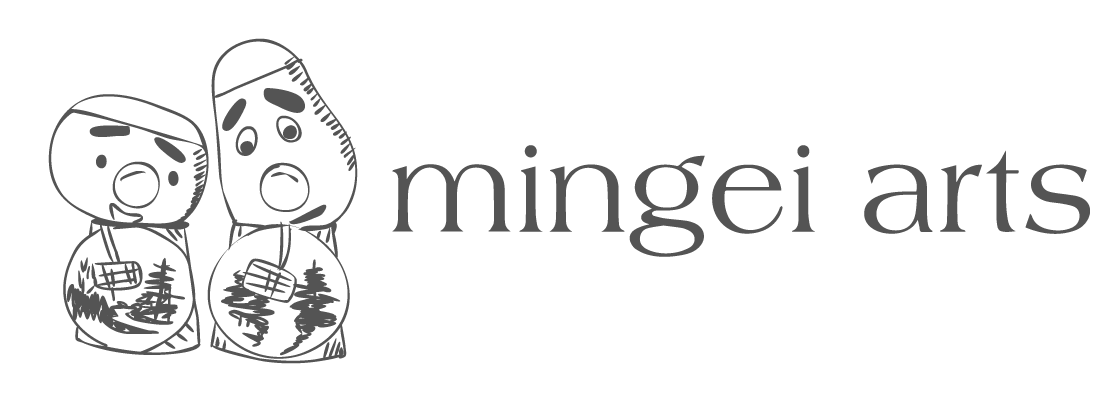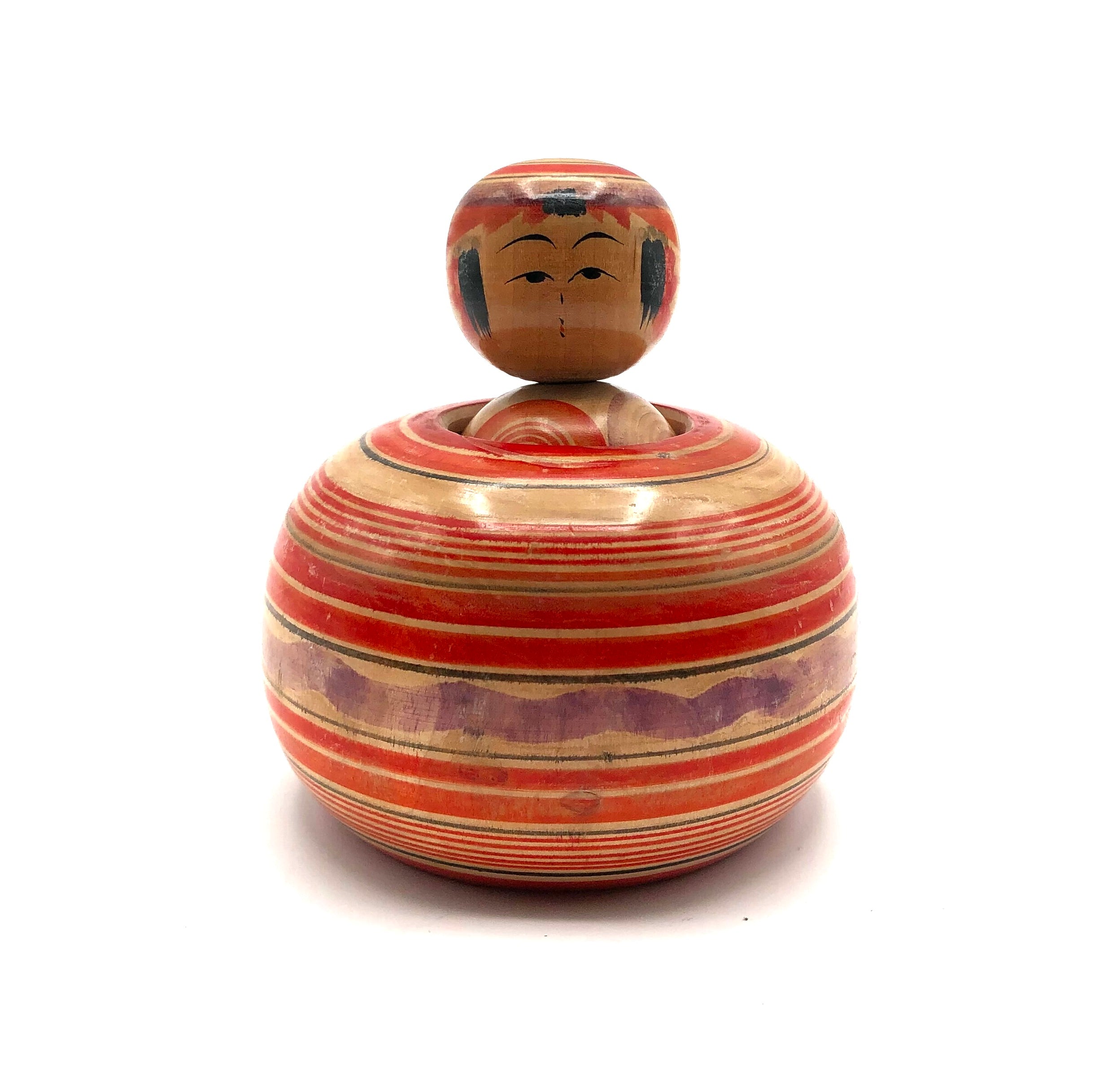
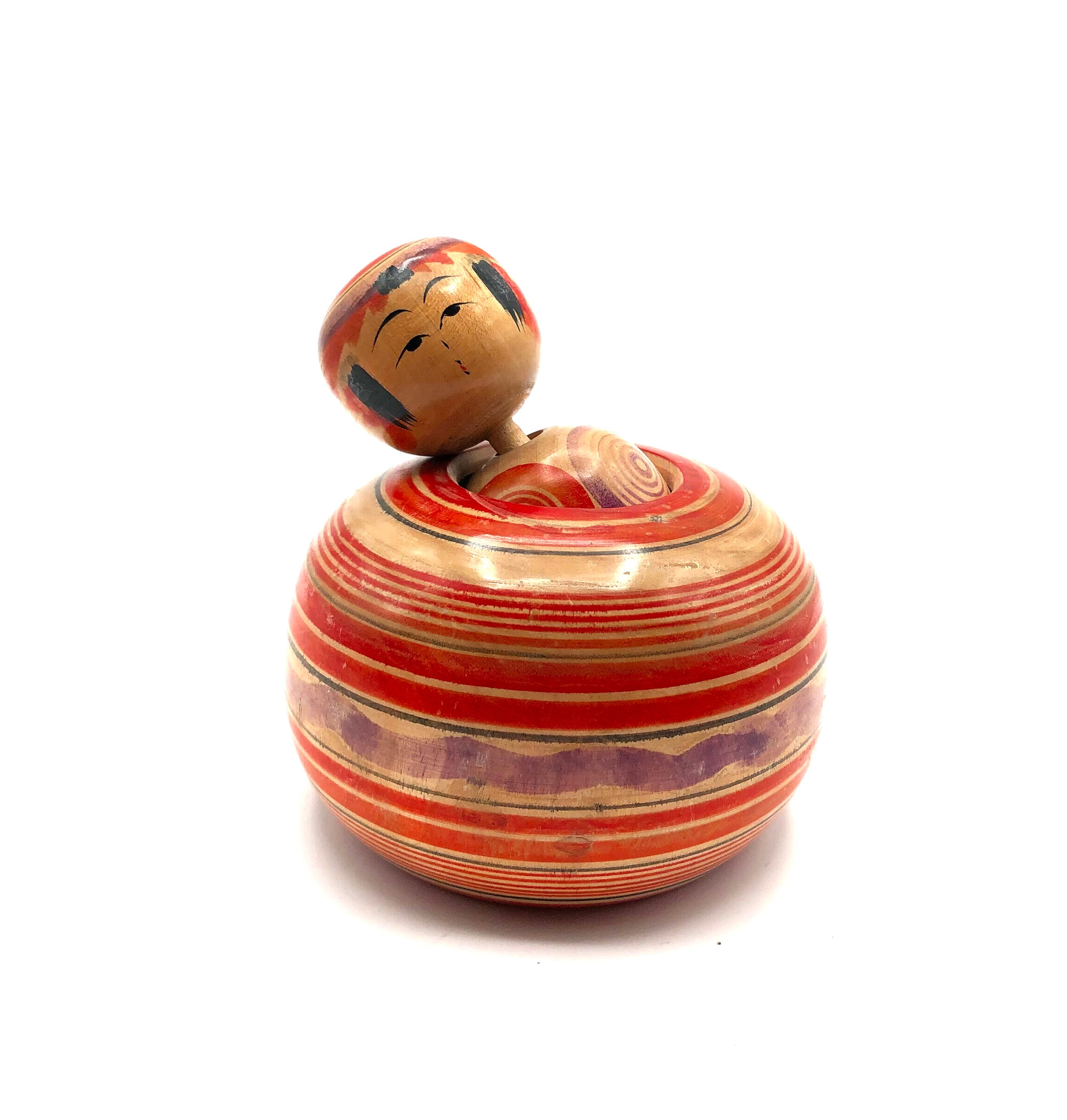
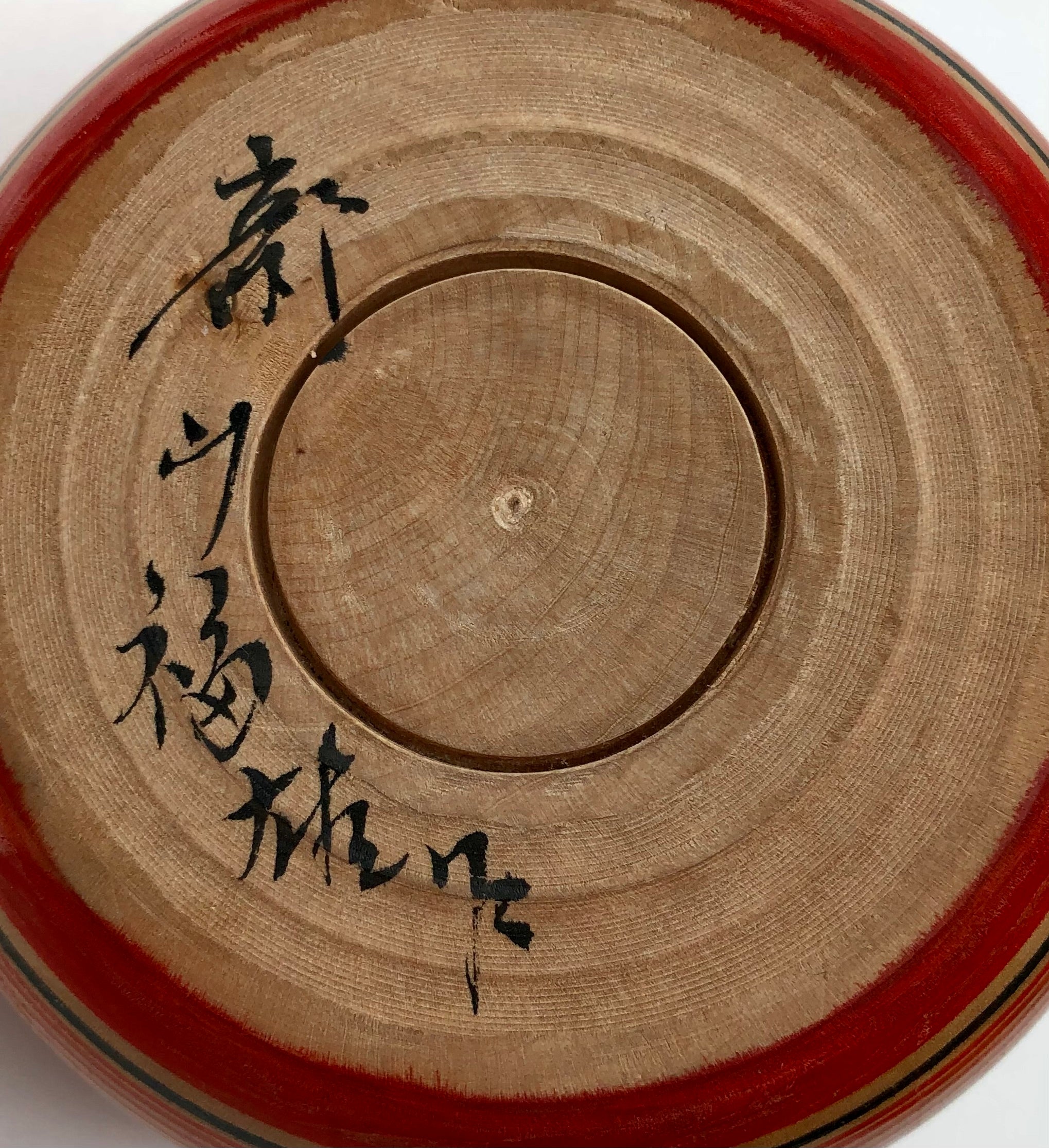
Vintage Japanese Yajirou Ejiko Baby | Simulated Wood Basket | Niiyama, Fukuo (1922-1987)
Dimensions: 4-1/2”h x 4-0”dia.
The Ejiko’s origin is derived from a folk toy that is called an Izume.ko Doll, (Izume.Ko means “Isume baby”) dates from the early 1910s and which comes from Tsuruoka, of the Yamagata prefecture. The toy is based on an Isume, a woven basket but in this case, it is simulated in wood with the baby, which is a spinning top sitting inside. Out of the earlier prototypes arose the Ejiko doll, which had its beginnings in the 1920s. NIIYAMA, Fukuo(1922-1987) in Miyagi prefecture of Tohoku, Japan. He was born as the first son of Niiyama, Fukutaro (1897-1965), who was a kokeshi craftsman in Yajiro of Miyagi prefecture. He started learning woodwork in 1935 and started making kokeshi dolls in 1938.
The doll is not removable but the head and shoulders move freely within this Ejiko showing only the upper body of the body with circular designs in multiple colors on its body and head with Yajirou-Kei styling. Firstly, the head is painted with a beret-like feature or a bun on their heads, painted with multiple colors and sizes of circles in the center and hair on the sides of its skull. It has side hair fringes with double eyelids and a pick-shaped nose. The body of the container has Rokoru moyo horizontal strips in red and purple encircling the lower portion of the body. The piece is signed and titled by the artist on the bottom of the container.
You can read more about Ejiko Kokeshi Toys in our BLOG by going to: https://mingeiarts.com/collections/ejiko-izume-ko-nemariko and https://mingeiarts.com/collections/yajirou-kei-family.
Condition: Excellent meaning the piece is perfect, totally original, and complete and functions as intended. No cracks, no breaks, and no missing pieces, and retains its wonderful presence and is previously protected and treasured by the previous owner. This artifact meets all the standards of the collectible Vintage Kokeshi toys and tops and without question a unique treasure for the Japanese Ejiko and toy collector.
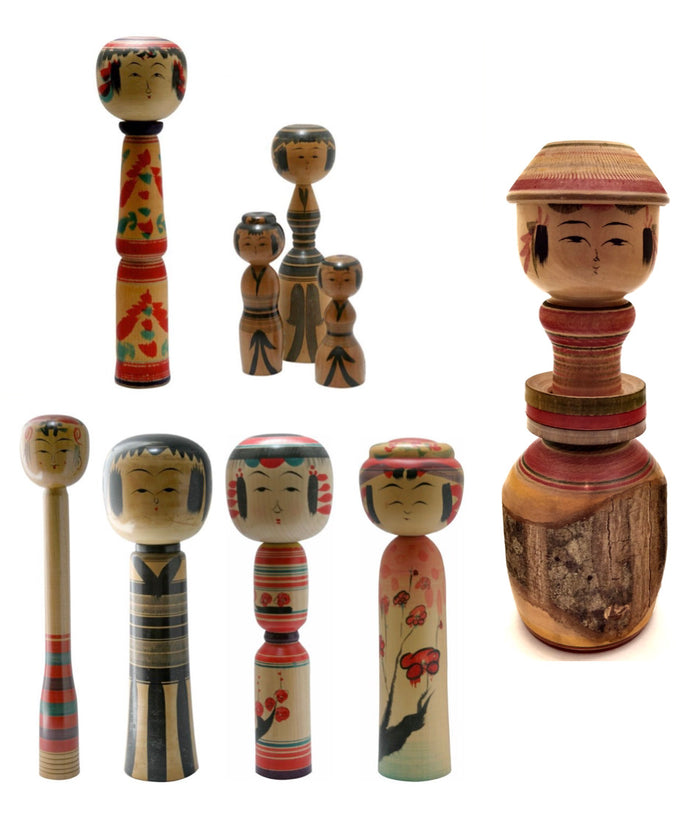
Japanese Traditional Kokeshi
Yajirou-Kei (Family)
Prefecture: Miyagi
Origin:
This strain of Kokeshi is said to have been an offshoot of the Tougatta strain and is far less refined. That eventually developed into a unique style that remains today. The creators of these dolls hail from the small farming village of Yajirou-machi near Kamasaki Onsen, in Miyagi Prefecture, once a farming village between two tall mountains. The Kiji-shi (woodworkers) divided their time between farming and woodcraft. Those who made kokeshi in their spare time sent their wives to the nearby Kamasaki Onsen to sell their work to tourist shops and onsens.
Collector's note – characteristics/painting style:
The majority of this style has distinct waists, or (kubire), where the body tapers inward, with a wider, flared base similar to a kimono, thus making them very stable. The upper body usually has a hand-painted collar with horizontal stripes encircling the body, as in the Rokoru-moyo style, and vertical stripes running below the waist to the base of the doll. However, Yajirou dolls can also be found with a series of chrysanthemum petals running down the front of the body, or a branch of plum blossoms, as the only decoration. Yajirou dolls are some of the most brightly painted of the traditional family group. Utilizing a veritable rainbow of colours, from the usual red and black to green, yellow, and even blue and purple, they are available in probably the widest range of shapes. Some also have a painted beret-like feature or a bun on their heads, similarly painted with a red center spot. Less common are Yajirou who have conical hats known as Suge-Gasa. Typically seen is one lid or double eyelids and a cat or pick-shaped nose. Yajirou kokeshi have been made from cherry wood, camellia, and maple, but the preferred wood is white dogwood, (Mizuki). And finally, both Yajirou and Tougutta dolls are sometimes created with loose rings circling the waists. Carved from the same wood as the body, which is a very meticulous method! This treatment is referred to as 'Yamiyo' style kokeshi.

Leading, Craftsmen:
Niiyama, Keimi, 1925, (Shirabu, Yamagata) - Master Niiyama, Keimi. No additional published information
Niiyama, Fukutaro, 1898-1965 - No additional published information
Niiyama Fukuo, 1922, (Yajiro Shironishi, Miyagi) - Master: Niiyama, Fukutaro. No additional published information
Niiyama, Hisaharu, 1942-2008 - No additional published information
Niiyama, Sanai (Master) - No additional published information
Oizumi, Kiyoni - No additional published information
Saito Masao, 1932, (Shiroishi, Miyagi) - Master: Sato, Tsugio. No additional published information
Sato Tatsuo, 1928-2009, (Yajiro Shiroishi , Miyagi) - Master: Sato, Imasaburo. No additional published information
Sato Yoshiaki, 1936, (Shiroishi Miyagi) - Master: Sato, Tatsuo. No additional published information
Sato, Koichi, 1936, (Shiroishi, Miyagi) - Master:Hamatsu, Heisaburo. No additional published information
Explore & Learn More about Yajirou-Kei (Family)